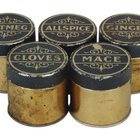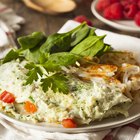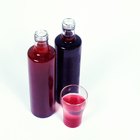Meringue is a light, fluffy desert or topping made with sugar and egg whites. When properly beaten, egg whites will expand as the molecules absorb air and fluff up. Meringue is commonly a thorn in the side of many home cooks because it is highly sensitive to moisture and temperature. Proper preparation and handling are important to a stiff, stable meringue.
Start with dry bowls and utensils. Avoid any excess water, including humidity or rainy weather.
Separate the eggs while they are cold. Cold eggs are easier to separate than if at room temperature. Avoid introducing any yolk at all to the whites. The slightest amount of yolk will prevent the whites from stiffening.
Allow the egg whites to come to room temperature before beating them. Beat the egg whites on your mixer’s highest setting. Do not add sugar until soft peaks begin to form. Add sugar slowly to avoid collapsing the whites.
Related Articles
A Substitute for Meringue

How to Make Sugared Almonds

How to Make a White Decorator Icing

How to Make Simple Glazed Walnuts

How to Make Liquid Sugar Concentrate
Simple Sugar Cookie Recipe

How to Bake Custard in Ramekins

Main Ingredients of English Muffins

Will Gummy Worms Melt If Baked in ...
How Many Calories are in Pistachio ...

How to Cook Eggs Sunny Side Up Without ...

How to Cook an Egg White Omelet in the ...

How Long in Advance Can You Cook Creme ...

How to Melt White Sugar for Flan

How to Substitute Cornstarch for ...
How to Keep Meringue Pie Topping From ...

How to Make Sweet Syrup With Fruit Juice

How to Substitute Splenda for Sugar
How to Soften Crystalized Molasses

What Is Agave Syrup?
Writer Bio
Tara Kimball is a former accounting professional with more than 10 years of experience in corporate finance and small business accounting. She has also worked in desktop support and network management. Her articles have appeared in various online publications.